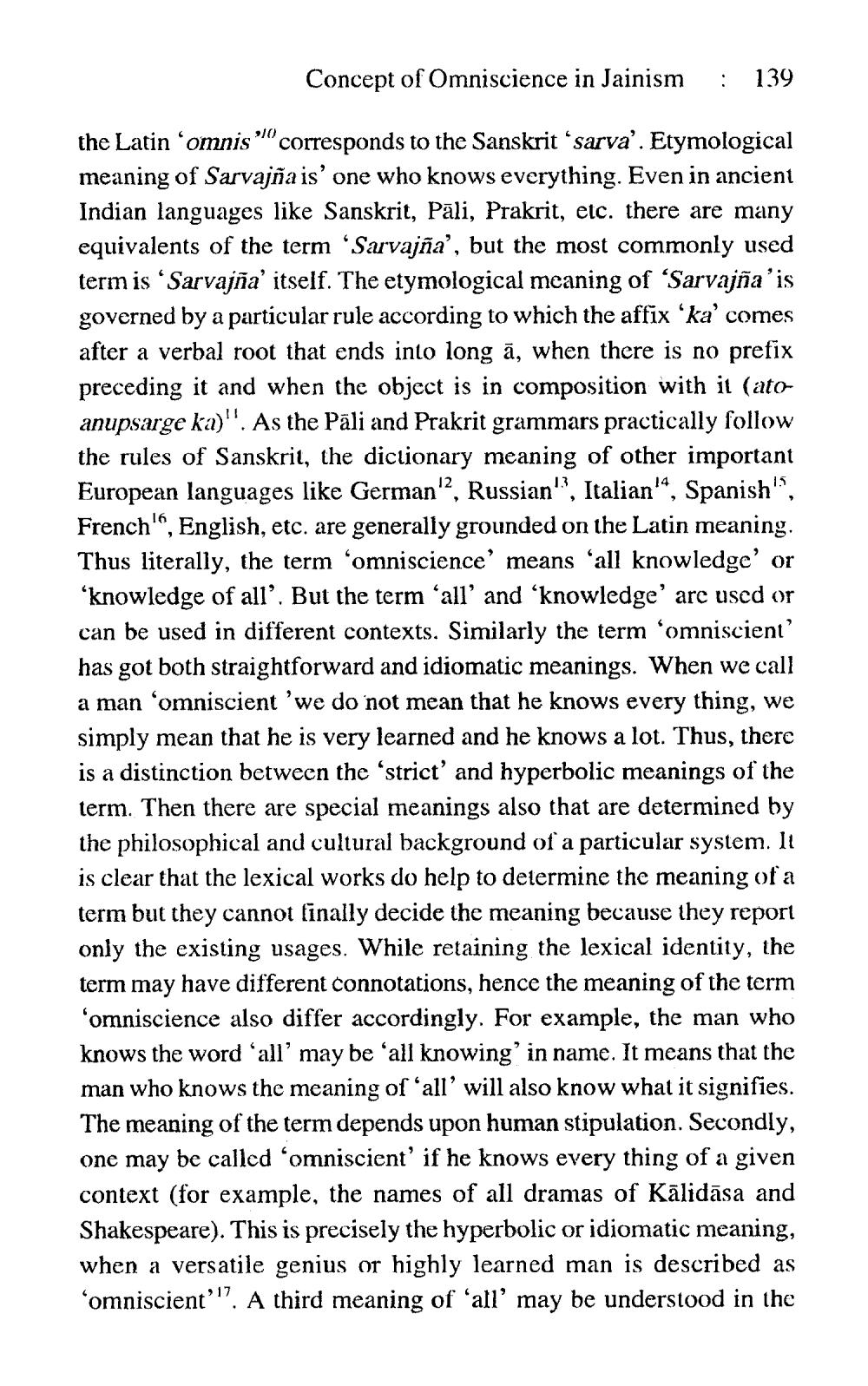________________
Concept of Omniscience in Jainism
: 139
the Latin ‘omnis” corresponds to the Sanskrit ‘sarva'. Etymological meaning of Sarvajña is' one who knows everything. Even in ancient Indian languages like Sanskrit, Pāli, Prakrit, etc. there are many equivalents of the term 'Sarvajña', but the most commonly used term is ‘Sarvajña' itself. The etymological meaning of 'Sarvajña’is governed by a particular rule according to which the affix 'ka' comes after a verbal root that ends into long ā, when there is no prefix preceding it and when the object is in composition with it (ato anupsarge ka)". As the Pāli and Prakrit grammars practically follow the rules of Sanskrit, the dictionary meaning of other important European languages like German'?, Russian"), Italian, Spanish'', French'", English, etc. are generally grounded on the Latin meaning. Thus literally, the term 'omniscience' means 'all knowledge' or “knowledge of all’. But the term 'all' and 'knowledge' are used or can be used in different contexts. Similarly the term 'omniscient' has got both straightforward and idiomatic meanings. When we call a man 'omniscient 'we do not mean that he knows every thing, we simply mean that he is very learned and he knows a lot. Thus, there is a distinction between the 'strict' and hyperbolic meanings of the term. Then there are special meanings also that are determined by the philosophical and cultural background of a particular system. It is clear that the lexical works do help to determine the meaning of a term but they cannot finally decide the meaning because they report only the existing usages. While retaining the lexical identity, the term may have different connotations, hence the meaning of the term 'omniscience also differ accordingly. For example, the man who knows the word 'all' may be all knowing' in name. It means that the man who knows the meaning of 'all' will also know what it signifies. The meaning of the term depends upon human stipulation. Secondly, one may be called 'omniscient' if he knows every thing of a given context (for example, the names of all dramas of Kālidāsa and Shakespeare). This is precisely the hyperbolic or idiomatic meaning, when a versatile genius or highly learned man is described as ‘omniscient''?. A third meaning of 'all' may be understood in the




